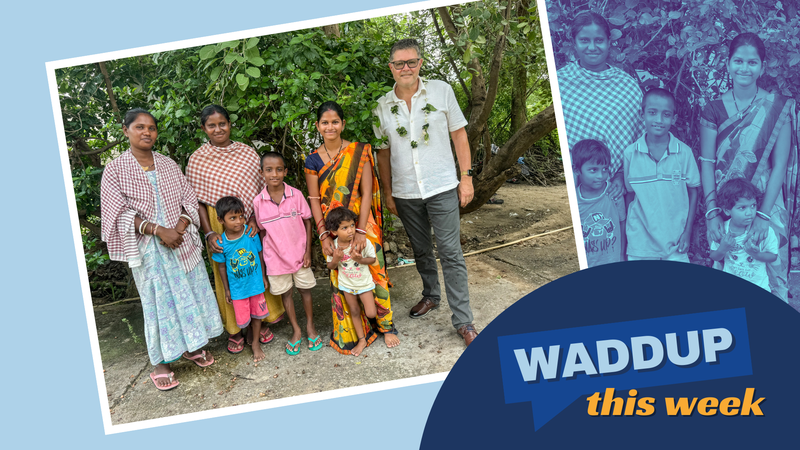'Nothing about us without us'
Peter Waddup, CEO - The Leprosy Mission Great Britain
This week began with shouts of ‘That’s not my King!’. As I’m sure you’ll have read, King Charles paid an eventful visit to Canberra. While addressing Australia's Parliament House he was heckled by an Aboriginal Australian senator.
Whether or not she went about it the right way, Lidia Thorpe's outburst highlighted the scars of colonisation. These are felt acutely by many Indigenous Australians today. Only last year did Australian Prime Minister Anthony Albanese say a young Indigenous man was more likely to go to jail than university. His claim is tragically borne out by statistics.
Reading the story I was struck by the many parallels between Indigenous Australians and people affected by leprosy. Both groups have limited access to education, healthcare and housing. Both face discrimination and are excluded from decision-making that affects them. Crucially, the voices of both groups are silently crying out to be heard. Only then can justice prevail and change take place.
The 20th International Leprosy Congress in Manilla proved to be a turning point for giving a voice to people affected by leprosy. The strapline for the global event to end leprosy in 2019 was 'nothing about us without us'. For the first time, people affected by leprosy from across the globe played an active part in the summit!
Including the voices of people affected by a disease in the fight to end it seems an entirely obvious step. Yet it hasn't always been the case. As a result of the 20th congress, a Global Champions group was set up. This special forum is a place where people affected by leprosy share their thoughts and experiences. I am honoured to sit on the group which is thriving today. I have learnt so much from the participants' honesty and openness. The bravery they show in telling their stories can only pave the way to quashing stigma and better lives.
I left Manilla feeling buoyed for a better future for people affected by leprosy. There was a palpable optimism that by standing up to prejudice, the race to end leprosy itself would be accelerated. I felt so energised having heard first-hand from the very people we were gathered to help. Hearing their ideas on overcoming obstacles they faced somehow transformed everything into colour. It reinvigorated the raison d'etre of everyone in the room. Any greyness and fatigue were instantly expelled from our collective fight for justice.
Sadly the landmark conference proved to be a lesson in not taking progress for granted. The number of people affected by leprosy was drastically reduced at the 21st International Leprosy Congress in 2022. It was a big step backwards and one that we are advocating to be rectified at the 22nd International Leprosy Congress. This will take place in Indonesia, a country with the second highest leprosy burden in the world, in 2025. Watch this space!
It is sad that heckling a Monarch is the only way we hear in the UK media of the struggles faced by marginalised people. But what an important message for us all to take away from this week. It reminded me that we all have a need to be heard. I am so thankful to Leprosy Mission supporters for responding to the voices of one of the world's most marginalised people groups.
The news this week encouraged me to think how I could further magnify the voices of people affected by leprosy. It also challenged me to make a point of talking to people I come across in my daily life who may be overlooked. It might be a homeless person failing to even make eye contact with passersby. Or perhaps an elderly person struggling to care for themselves or a partner. Underneath the unending noise, there is always a small quiet voice just waiting to be heard.
